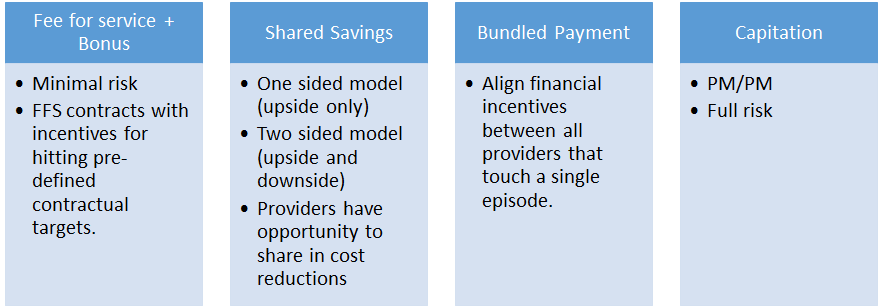As the movement to value based arrangements continues many providers are considering joining an Accountable Care Organization (ACO). At the same time, regulators from the Federal Trade Commission (FTC) and the HHS Office of Inspector General (OIG) are signaling increased scrutiny of Accountable Care Organizations and other value based payment arrangements, especially those making creative use of the antitrust and fraud and abuse waivers in place for Medicare ACOs. A recent article states that claims of higher quality of care may help in defense of antitrust action. Tracking and organizing results that reflect efficiencies and quality improvements is obviously a must but before a provider even considers joining an ACO, the following questions must be asked and answered:
- What level of risk are you willing to assume?
- First know what level of risk you are willing to assume. For instance, are you comfortable assuming risk at all or do you want to enter this area more slowly and share in only the savings? A core challenge when converting to a value based, rather than fee for service system, is the lack of consistency in payment measures.
- What are your baseline metrics for the quality measures?
- The ACO will identify quality measures as part of the agreement. Currently there is a lack of a single set of metrics adopted by all payer sources. To negotiate your position, you must know your baseline and whether you can meet the benchmarks identified. Quality metrics can include for example, HEDIS measures, AHRQ measures, and CMS measures.








